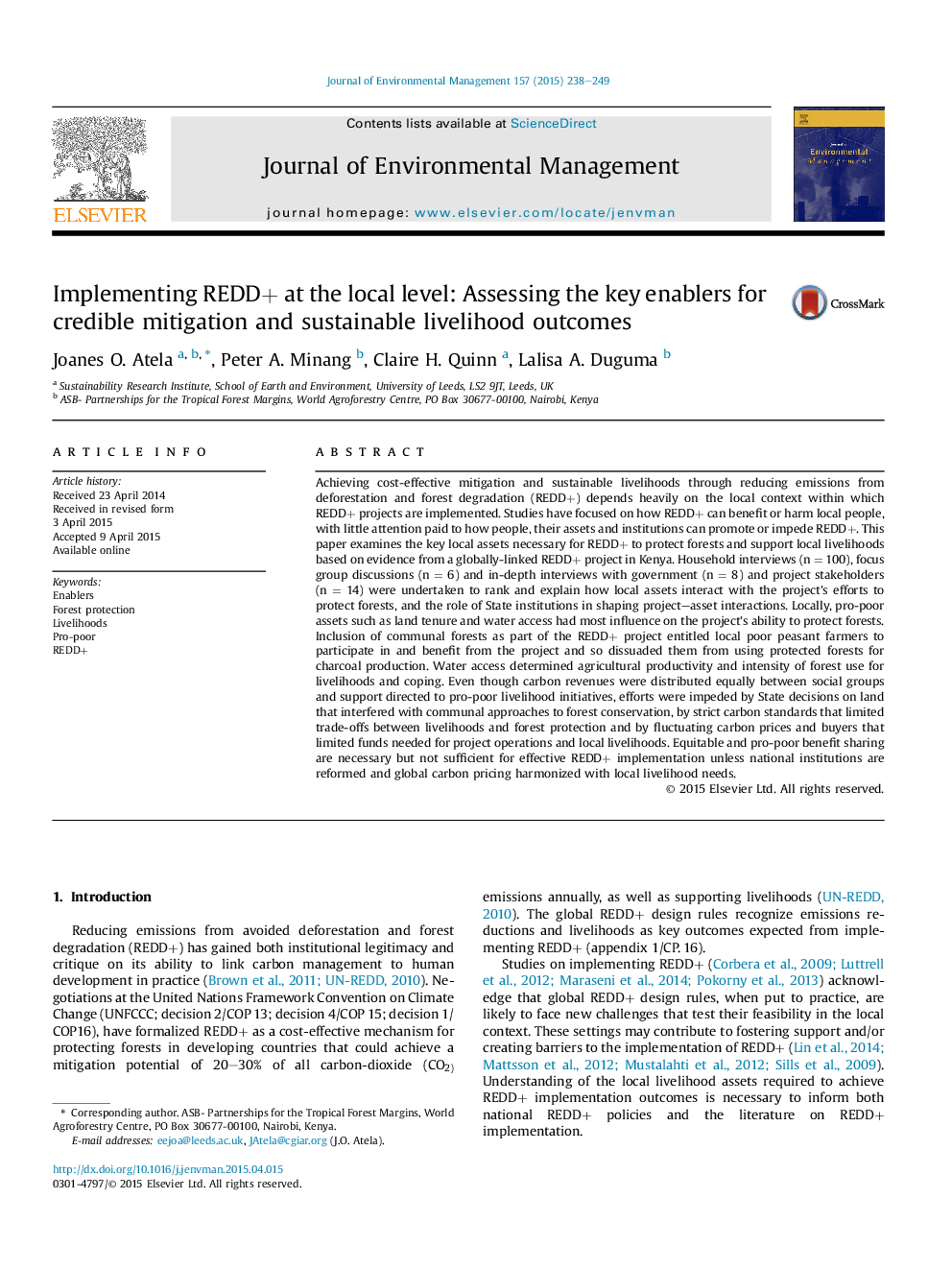| کد مقاله | کد نشریه | سال انتشار | مقاله انگلیسی | نسخه تمام متن |
|---|---|---|---|---|
| 7482270 | 1485255 | 2015 | 12 صفحه PDF | دانلود رایگان |
عنوان انگلیسی مقاله ISI
Implementing REDD+ at the local level: Assessing the key enablers for credible mitigation and sustainable livelihood outcomes
دانلود مقاله + سفارش ترجمه
دانلود مقاله ISI انگلیسی
رایگان برای ایرانیان
کلمات کلیدی
موضوعات مرتبط
مهندسی و علوم پایه
مهندسی انرژی
انرژی های تجدید پذیر، توسعه پایدار و محیط زیست
پیش نمایش صفحه اول مقاله

چکیده انگلیسی
Achieving cost-effective mitigation and sustainable livelihoods through reducing emissions from deforestation and forest degradation (REDD+) depends heavily on the local context within which REDD+ projects are implemented. Studies have focused on how REDD+ can benefit or harm local people, with little attention paid to how people, their assets and institutions can promote or impede REDD+. This paper examines the key local assets necessary for REDD+ to protect forests and support local livelihoods based on evidence from a globally-linked REDD+ project in Kenya. Household interviews (n = 100), focus group discussions (n = 6) and in-depth interviews with government (n = 8) and project stakeholders (n = 14) were undertaken to rank and explain how local assets interact with the project's efforts to protect forests, and the role of State institutions in shaping project-asset interactions. Locally, pro-poor assets such as land tenure and water access had most influence on the project's ability to protect forests. Inclusion of communal forests as part of the REDD+ project entitled local poor peasant farmers to participate in and benefit from the project and so dissuaded them from using protected forests for charcoal production. Water access determined agricultural productivity and intensity of forest use for livelihoods and coping. Even though carbon revenues were distributed equally between social groups and support directed to pro-poor livelihood initiatives, efforts were impeded by State decisions on land that interfered with communal approaches to forest conservation, by strict carbon standards that limited trade-offs between livelihoods and forest protection and by fluctuating carbon prices and buyers that limited funds needed for project operations and local livelihoods. Equitable and pro-poor benefit sharing are necessary but not sufficient for effective REDD+ implementation unless national institutions are reformed and global carbon pricing harmonized with local livelihood needs.
ناشر
Database: Elsevier - ScienceDirect (ساینس دایرکت)
Journal: Journal of Environmental Management - Volume 157, 1 July 2015, Pages 238-249
Journal: Journal of Environmental Management - Volume 157, 1 July 2015, Pages 238-249
نویسندگان
Joanes O. Atela, Peter A. Minang, Claire H. Quinn, Lalisa A. Duguma,